This One’s for the Lifers
It’s hard to scroll through climbing news headlines these days without seeing mention of some young gun sending yet another hard line. And while these accomplishments are certainly worth celebrating, (and I don’t mean to sound like a hater here, because I’m not) I’m just not that impressed. Sure, it’s amazing these young climbers can reach that level so quickly, but they also have stacks of things in their favor. They have no responsibilities, their tendons and muscles heal quickly, they need few rest days, they have access to mega-gyms, and they have small fingers, which make grabbing small holds easier.
What does impress me is the opposite side of the spectrum. The “older” climbers pushing into new levels, the guys and gals who have persevered through a lifetime of other commitments, like family, work, health issues, injuries, etc. The lifers who love it so much that they’ve stayed with it through thick and thin, and continue to refine their craft well past what was once thought to be the prime sending years.
I think it’s an incredibly inspiring time to be a climber because we are finally moving past the stigma that you have to climb your hardest when you are “young” or it’s not going to happen. This is being proven wrong on daily basis, and almost without exception all the climbers I know over 35 continue to climb their hardest routes with each progressing year (sorry JT, your theory is crap.)
While they may not have the advantages of youth, older climbers have a lot going for them: They are smarter, they are more efficient with their time, they know they need to get it done in the least amount of time possible. They take their training seriously, they eat well, they have years of technique acquired from countless hours on the rock. There may be a rare individual who has all these factors line up when they are in their twenties, but it seems highly unlikely for most.
So what’s the point? Simply the good news that you have the rest of your climbing life ahead of you. You can continue to refine your technique, train smarter, climb more efficiently and get stronger along the way. And even if you get hurt, as Dave MacLeod says in 9 Out of 10 Climbers, you have time to recover from injuries and still get better at climbing.
At some point, your best sends as far as numbers go will indeed be behind you. When you reach this moment will likely be at a much higher age than you previously thought, and even after that, you can still become a better climber. And those two things give me a lot to look forward to.
6 Responses to This One’s for the Lifers
Bulldog Creek Dog Walk (IV WI 4+)
Hayden Carpenter and Tom Bohanon recently repeated an obscure ice climb on the south side of Mt Sopris. Given a brief mention in Jack Robert’s ice guide, Bulldog Creek Walk is described as being 100 meters of WI 4. What they found was seven pitches of ice in a remote setting that makes for one […]
Connect with Us





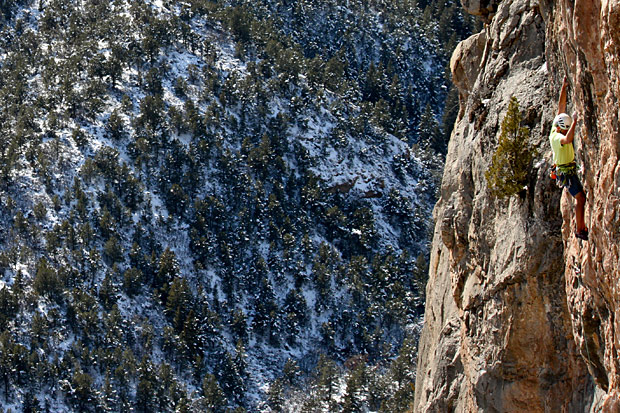



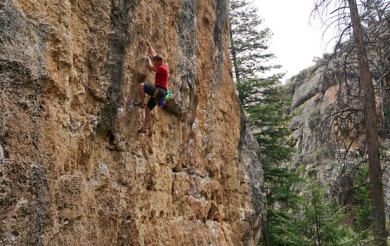
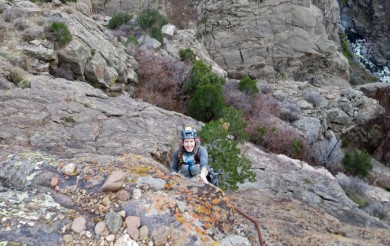
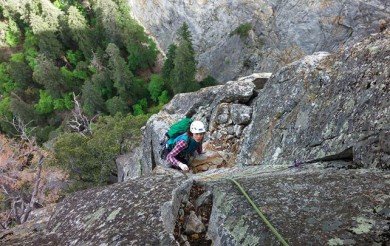
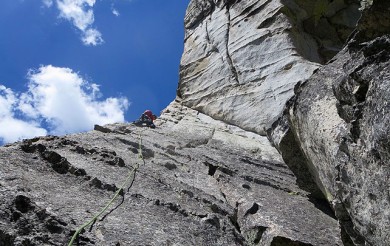



“Sure, it’s amazing these young climbers can reach that level so quickly, but they also have stacks of things in their favor. They have no responsibilities…”
As a grumpy old lifer myself, I feel OK pointing out that I strongly disagree with the statement above. This argument is made often that kids have this crazy advantage because all they have to worry about is climbing and they don’t have any responsibilities. Having spent time with both Ashima and Kai Lightner I can assure you this is very far from the truth.
For example, there was one evening at Miguel’s Pizza when I walked in to see Ashima doing homework. She was by far the strongest climber in a room of dozens of 20-somethings engaged in various forms of laziness and brain cell destruction. She was the only one with responsibility at that moment. She was also the only one that didn’t have the freedom to drive herself to the crag. While many of the others in that room had blown off work, family, school, and real jobs to spend a few months falling off their 13a projects, Ashima had just 5 days over fall break. Just 5 days of outdoor climbing for the entire fall season. She took no rest days and sent two 5.14c’s.
Kai is another example of a kid that gets outdoors just a few days a year. They have real 9-5’s (school) and homework, and scheduled activities. They don’t have money either! And above all, they lack the freedom to get to the crag when they want, something that many of us lifers enjoy.
So while I agree that kids have many of the other advantages you mentioned like quick recovery, good gym training, etc… lack of responsibility is not one of them.
But yeah, they are little bastards with small fingers. Stay off my lawn, you rascals! (and by lawn, I mean my project.)
Those are good points Mike, though I would still argue that going to school and doing homework is way less stressful than holding down a job, paying the mortgage, taking the kids to school, etc. Good for them though, if they are that disciplined now, imagine where they will be in ten or twenty years!
Yeah, baby. I’m 46 and going to climb Time Wave Zero (23 pitches) next month.
Some one needs to define “better at climbing” for me. I still love it, enjoy the friends that I have met climbing. Delight in introducing newbies to the sport even if I probably won’t get on the sharp end on the climbs that I used to lead. I do hope to grow old gracefully and delight in getting on the rock! Some how I feel I don’t have to prove myself by doing harder and harder routes. After seeing 4 generations of my family climbing and being able to join them, I am perfectly content to cheer for the younger climbers without trying to match or compete. Anyone else out there feel the same way?
I’ve been listening to the Enormocast and Trainingbeta podcasts lately and I have to laugh when Chris, Neely and their guests talk about being old, at 35 or 40. I did my hardest routes when I was in my 40s and it wasn’t because I was slacking in my twenties or had started climbing in my 30s. I climbed harder in my 40s because standards changed, what was considered hard changed and I changed with it.
When I started climbing there were only two 5.11s in the Gunks (Doug’s Roof and Persistence) and if you led 5.8 you were considered good. In my 40s 5.12 was considered good and 5.14s were coming into vouge, so I thought I should be able to lead 5.13 at least. Now in my 50s, and getting back into climbing after a 10 year lay-off, I see that 5.13 is considered “good” and 5.14 is not just for the elite. So can I climb harder now than when I was 40? I’m not sure, but I’ll give it a good shot. I think motivation will be the key. Is climbing as important to me now as it was then? Am I willing to push as hard now as then? Age is mental. Yes there is a physical component to it but that can be altered by how you think and what you believe.
Love it John, thanks for sharing! And let us know when you send 5.13!